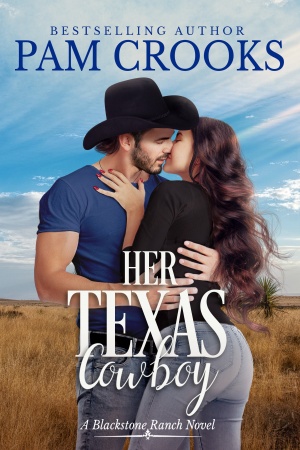Start reading this book:

Share This Excerpt
New York City
Before the stainless-steel doors could fully open to the fourth floor, Lucienne Dunn strode briskly out of the elevator and into the anteroom of her father’s office. Thankfully, none of his clients waited on the plush couches and chairs. The oversize hardcover books on the low table remained skillfully arranged. Not even a forgotten coffee cup disturbed the room’s silent emptiness.
At least she’d be spared the staring.
The elevator doors closed behind her with their usual whispered whoosh. She headed across the room, decorated in the neutral hues she’d carefully chosen and with every piece of her favorite art precisely hung. Beneath large brass letters emblazoning “Dunn and Associates Realty,” Miriam Barnett sat behind the crescent-shaped desk, also Lucienne’s design, and spoke quietly into the phone.
Their gazes met. Miriam quickly requested to put the caller on hold and pressed a button with a manicured fingertip. Lowering the handset, she regarded Lucienne with something akin to sympathy. Or maybe pity.
Lucienne detested pity.
“They’re waiting for you,” Miriam said.
Always professionally dressed, short hair highlighted and clunky jewelry coordinated, Miriam had worked for her father for as long as Lucienne could remember. He trusted her as much as any boss would trust a woman whose long-term employment inspired loyalty. As Lucienne had matured into adulthood, she’d grown to trust her, too.
“Is Mason with him?” Lucienne asked, her black stiletto heels never breaking their staccato rhythm.
“Yes.”
A bad sign. Mason Girard, her father’s attorney, was never on time, and the fact that he was here before Lucienne, well, he’d likely arrived early to brief her father on whatever bad news he had.
Dread thudded in her temples, but she kept walking toward an empty conference room. She went in, helped herself to a bottle of Perrier from the miniature refrigerator in the corner, strode back out again, and headed down the hall to the suite at the end.
Cleveland Dunn enjoyed the largest office on the floor, which was more for his love of lavish entitlement than for a need to have so much space. Lucienne knocked once, turned the knob, and went in. Sure enough, there both men were, sitting at the gleaming table used for meetings not unlike this one, each with a crystal tumbler of bourbon in front of him.
Another bad sign, that bourbon.
Her father never drank during the day. In fact, he rarely drank at all, a change of lifestyle from his youth when he teetered on alcoholism and a history of bad mistakes, mostly with women. That he felt the need for a bracer now meant he was more troubled about her situation than he led her to believe.
Both men stood. Mason removed his black horn-rimmed glasses, as if he wanted to see her better. A habit of his, she’d learned, since he seemed to look at her a lot.
“Lucienne.” Her father indicated the tall back leather chair across from him. “Have a seat.”
She made no attempt to greet him with her usual hug and kiss. Now was not the time for affection, nor was she in the mood for it.
Her bottle of water pathetically inadequate as her own bracer, she sat, and they followed suit. A file folder of papers was spread on the table’s surface, and she didn’t even want to know what they said.
“How much time do we have before your plane leaves?” Cleve asked, pulling back his cuff to check his gold watch.
It was borderline amazing that he remembered today was the day she had to go to Texas. To a cattle ranch, no less, in the middle of nowhere. Usually, he was clueless about her schedule, because, of course, his own took precedence.
“In less than two hours.”
“You’ll never make it in time,” he said matter-of-factly.
“I know.”
She’d already called Ava Howell, her best friend, to give her a heads-up. Ava lived on the Blackstone Ranch now, having recently moved there from New York City, and seeing her again was the only bright spot in Lucienne’s dark nightmare.
“Have Miriam rebook you,” her father said.
“I’ll go on stand-by.”
“That’s so inconvenient, Lucienne.” He shrugged. “But if that’s what you want to do.”
“It is.” By now, inconvenience was the least of her worries. “Let’s get started, shall we?” She twisted off the cap of her Perrier and took several swallows. The cold carbonation helped stave off her nausea. She recapped the bottle and set it aside. “What have you found out, Mason?”
The attorney, in his early thirties, had proved himself many times over in Cleveland Dunn’s eyes. Shrewd and ruthless, he knew how to find the weak spot in Cleve’s competitors. He thrived on knowing how to make them bleed. He craved money and power as much as Cleve did, and when her father was forced to play hardball in the dog-eat-dog world of the New York real estate market, Mason was his coach.
Must be why his young wife, Emma Jean, divorced him after less than three years of marriage. He was the pit bull in that relationship. She was like a baby bird. Lucienne had known from the moment they walked down the aisle the marriage would never last.
Mason put his glasses back on and pulled out a paper from his pile.
“It doesn’t look good for you, Lucienne,” he said.
Her spirits sank. The rational side of her knew that already; the irrational side had held out hope the situation wasn’t as bad as she feared. “Wonderful.”
“But we have a plan.”
“A good one, I hope.”
“Mason’s idea is our best option. It’s brilliant, in fact.” Her father steepled his fingers and leaned back in his chair, also a leather tall back. “However, it’ll be up to you to help us make it work.”
The dread returned, heavy in her stomach. “Except for Dena, I have the most to lose. Anything I do could be construed as manipulation—”
“Hear us out, Lucienne.” Mason smiled, a half curve to his mouth that held little warmth.
She sighed. She wasn’t sure she wanted any part of whatever ruthless plan he had in mind, but what choice did she have? If she didn’t, her days as a free woman could be numbered. “Fine. Start from the beginning. But I can’t imagine anything working well for me at this point.”
“Trust him.” Her father’s expression held a degree of sympathy but not nearly as much as she craved. “Trust me, too. I won’t steer you wrong if I can help it. We both want a victory for you and Dena.”
Dena. How many times had Lucienne wished the woman had never been born, let alone wheedled her way into her life? Or more importantly, her father’s?
Dena Beckmann was the pharmacy director at New York General Hospital. She possessed the looks, intelligence, and status that attracted his attention. She was young enough to fuel his ego and flirtatious enough to keep him interested. If there was anything Cleveland Dunn loved, it was having a beautiful woman on his arm.
It hadn’t taken long for her to become his latest live-in. She appeared to thrive on his wealth and reputation in the real estate world. She moved among his high society friends with ease. They seemed happy together, but apparently not happy enough for him to marry her.
But then, he’d declined to marry the mother of his only child, too. Something Lucienne struggled to forgive him for even now, all these years later.
Cleve didn’t do commitment.
Strange, though, how he’d become very committed when Dena had fallen so low.
“Jerry met with the Assistant U.S. Attorney yesterday,” Mason said, speaking of Dena’s lawyer, Jerry Rosen. “The DA wants Dena sentenced to the maximum. Twenty years.”
Lucienne’s skin chilled. “Oh my God.”
“He wants to make an example of her in case anyone else tries to imitate her embezzling scheme. But Jerry is hoping for two years, three at most. Probation, if they’re lucky.”
“Impossible. New York General will never let this go away easily.” Lucienne shook her head slowly.
“She confessed immediately,” her father said. “She turned over all her records. She couldn’t have made it any easier for the feds.”
“The judge will look at that favorably.” Mason regarded her, as if his prediction would make everything right.
Which it wouldn’t. Not even close.
“She cooperated only because she got caught,” Lucienne said. “She’d still be milking the hospital dry today if she could.”
Her father frowned. “We don’t know that for sure, Lucienne.”
“Of course we do. Doesn’t every criminal keep committing their crimes until they can’t anymore?”
“She’d begun to taper off submitting those fake purchase orders for medicines and supplies,” Mason said. “Deposits to her personal account were on track to be half of what they were last year at this time.”
“Oh?” Lucienne’s brow shot up. “Is that supposed to make me feel better? And should I remind you it was my signature on those fake purchase orders she gave to the feds?”
“I’m just saying she was pulling back. She knew what she was doing was wrong, and she was trying to stop.”
“Trying isn’t good enough!” Frustration spiked through Lucienne, hot and bitter. “She should’ve quit and confessed a long time ago.”
“In a perfect world, yes.” Even Mason appeared grim.
“In a perfect world, she would never have dragged me and my nonprofit into it. She would have recanted her accusations against me in a formal statement, admitting my innocence of her fraud.”
“Lucienne.” Her father reached toward her, as if he sought to take her hand, but the table was too big, and he couldn’t.
She fought for control. Now, more than ever, she had to be strong, because if she wasn’t, she’d shatter into a million pieces, and everything she’d ever done, had ever worked for, would be stolen from her forever.
Abruptly, she rose from the chair, strode across the office toward a wall of windows, and stared down into heavy traffic below. Always, there was traffic. People going about their business, living their lives, normal and happy and never having to worry about going to jail.
Lucienne breathed in. Breathed out.
Mason and her father watched her, waiting for her next move, even worrying about her, and the longer she stood here, wallowing in her own pity party, the later it’d be before she could get on that plane to Texas.
To a ranch with cowboys and horses and cattle, none of which she’d ever experienced before, and a whole new round of uncertainties washed over her.
But she couldn’t think about Texas.
She had to think about herself, her career, the children she’d worked so hard to save…
Squaring her shoulders, she pivoted and headed toward her father’s desk. On its top was a framed photo of Dena, alluring and provocative in a low-cut black dress, one strap seductively off her shoulder. Lucienne grasped the frame, smacked it facedown on the desk, and kept going.
If she never saw the woman again, it’d be too soon.
She sat at the conference table again, took several bracing swigs of Perrier, and faced Mason and Cleve squarely.
“Dena is on the board of my nonprofit. Because she accused me of tampering with those purchase orders, I’ve been charged as an accessory to fraud. Her fraud, not mine. I’m innocent of anything she’s done in this whole mess, but New York General doesn’t see it that way. They believe her because she’s falling all over herself to cooperate. Their lawyers believe her. To them, I’m guilty simply because she says I am. My signatures are their proof, and they’re threatening to take away my nurse practitioner’s license. I’ve already been placed on leave at my medical clinic. My manager refuses to say if I’ll ever get my job back. My reputation is in shreds, my work with Hope United is in the toilet, and I swear, I will never recover from this. Never.”
Frowning, her father lingered over a sip of bourbon. “She shouldn’t have dragged you or your nonprofit into this. But she’s extremely remorseful, for what it’s worth.”
“Remorseful?” Lucienne huffed. “If she’s remorseful, why doesn’t she admit the truth? She used me, Dad. She used the orphanage and clinic Hope United built and criminalized them for her own greed.”
“Unfortunately, yes, she did.”
“But we’re going to make it right for both of you.” Mason reached for his crystal tumbler, too, but didn’t drink, as if he expected his promise would cheer her up.
It didn’t.
“Convince me,” she said.
He finally took that sip. “Dena began restitution immediately after her activities were discovered, but unfortunately, she’s out of money. Her savings are drained, and all her assets are liquidated.”
“In addition, I can’t get involved outright. I have my realty company to think of,” her father said.
“How generous of you.” Lucienne wasn’t usually so sarcastic, but today, there was no help for it.
“Do you expect me to just abandon her?” he shot back.
Lucienne’s fingers tightened over the bottle of Perrier. “Like you abandoned my mother?”
The words were out before she could stop them. She had to move past the old hurts, the persistent resentment. She couldn’t think of them now. Instead, she had to remind herself that, in the time since, from when she’d been very young, he’d taken care of her. Kept her safe and protected. He’d given her a life of privilege she hadn’t dreamed possible while living on the verge of poverty with her mother.
But only because Cleveland Dunn hadn’t had much choice.
Like he had none now.
“I’m not going to abandon Dena like I did you or your mother,” her father said quietly. “I’ve learned from that mistake, and it’s not one I’ll make again.”
She blinked. Had she heard the admission from him before? Was she really hearing it now? Cleveland Dunn, admitting he’d been wrong?
“After numerous meetings with New York General’s Chief Financial Officer and his constituents, we’ve come up with a deal,” Mason said, talking fast before Lucienne could.
“A donation,” her father said. “Generous and anonymous.”
“For their new cancer center,” his attorney added.
Her eyes widened. That she hadn’t expected.
“If the money’s right, they’ve agreed to drop the charges against you. They don’t want a scandal any more than we do. And since Dena’s behavior has been nothing short of exemplary in light of her desire to repent and make full restitution, the deal is the best any of us could hope for.”
Lucienne didn’t move. But her brain twisted and turned to make sense of it all.
“Where are you getting the money?” she asked. “You just said—”
“That’s where you come in,” Cleve said.
She drew back. “Me?”
Mason set down his glass and pulled out another paper from his file. “I’ve been doing some digging into the Blackstone Ranch. Seems the Paxton family is sitting on a gold mine. Figurately, I mean.” He smiled. “Sort of.”
Her eyes narrowed. “Don’t be flippant, Mason.”
Her tone sounded sharper than she intended, but she didn’t much care. She was headed to the Blackstone Ranch as soon as she could get herself out of this office and on the plane to Texas. She’d promised her friend Erin Murphy, before she died last spring, that she’d help with renovating a ghost town on the ranch and turning it into a vacation resort. Ava had gone there to head up the construction, and now that the project had advanced to the second phase, the time had come for Lucienne to do her part. The decorating.
Mason slid the sheet of paper toward her. A map with a big red circle in the middle stared up at her.
“The ranch is huge. Thousands of acres, Lucienne,” he said. “In its early days, the original owner, Rupert Paxton, mined bituminous coal and lignite, which made him rich until the railroads came along and wanted oil to run the steam locomotives instead of coal.”
“Which forced ol’ Rupert to turn to raising cattle instead,” Cleve added.
“Yes. So?” Lucienne knew about the ranch, too. Ava spoke of it often, with great fondness and enthusiasm. A good thing, since she’d be living there after she married Rupert’s great-grandson, Beau, as soon as their wedding plans fell into place. “What does that have to with me and all the trouble I’m in?”
“Fast forward a few decades,” Mason said. “I kept wondering what else was on Paxton land besides coal and cattle. All those acres, there had to be something, right?” The attorney’s expression turned smug. “Seems they own the rights to rare earth minerals, on land right next to the new resort. Rupert’s Canyon, they call it.”
“Ava never mentioned it.” But Lucienne’s interest fluttered.
“I doubt the Paxtons want to advertise.” Her father smiled, smug, too. “A gold mine, remember?”
Lucienne tried not to feel uneasy. The news was too big to ignore. “I repeat. What does all this have to do with me?”
Cleve leaned forward. “I want to buy the ghost town resort, including Rupert’s Canyon with those mineral rights. I need you to convince the Paxtons to sell.”
Her jaw dropped. “What?”
“It’s the only way for us to raise the cash for Dena’s restitution and the hospital’s new cancer wing,” Mason said. “There’s no other way to clear your name.”
Grim, Cleve nodded. “By making this right for Dena, I’m making it right for you, too, Lucienne.”
“I will not… How can you possibly ask me to do such a thing?” She stood so suddenly her stilettos wobbled. “I refuse to involve innocent people to help Dena out of her own criminal scheme, and the Paxtons are at the top of my list.”
“My guess is they’d like a little spending money.” Mason’s tone turned cold. “Rumor has it they’re struggling financially.”
That much was true. Ava had told Lucienne as much, which was why Ginny Paxton, Beau’s mother, was so determined to convert the ghost town into a family-friendly vacation getaway. To supplement the cattle ranching income.
“I don’t even know them,” she said.
“Get friendly,” Cleve said.
“I don’t want them to know about this…this horror I’m living in now, either. It would only embarrass Ava and make the Paxtons suspicious of why I would even suggest they should sell.”
“So don’t tell them anything.” Mason rose and moved closer. “Not a word if you can help it.”
“Plant the seed, Lucienne,” her father said firmly. “That’s what we need you to do. When the time is right, I’ll approach them and offer them a deal they can’t refuse.”
Mason stood in front of her, filling her senses with his Giorgio Armani cologne. He smiled. “You’ll do that for us, won’t you, Lucienne?”
Her stomach roiled, and she took a step back. Us. The four of them, including Dena. After all the woman had done, why would Lucienne want to help her ever again?
But Lucienne teetered on the brink of desperation. Could she manipulate the Paxtons to clear her name and reputation? Dare she help her father and attorney convince them to give up land they’d held for generations? Could she be so selfish?
The prospect left her shaking.
A little sick, too.
But if she wanted to stay out of jail, she had no choice.
She had to try.
End of Excerpt










